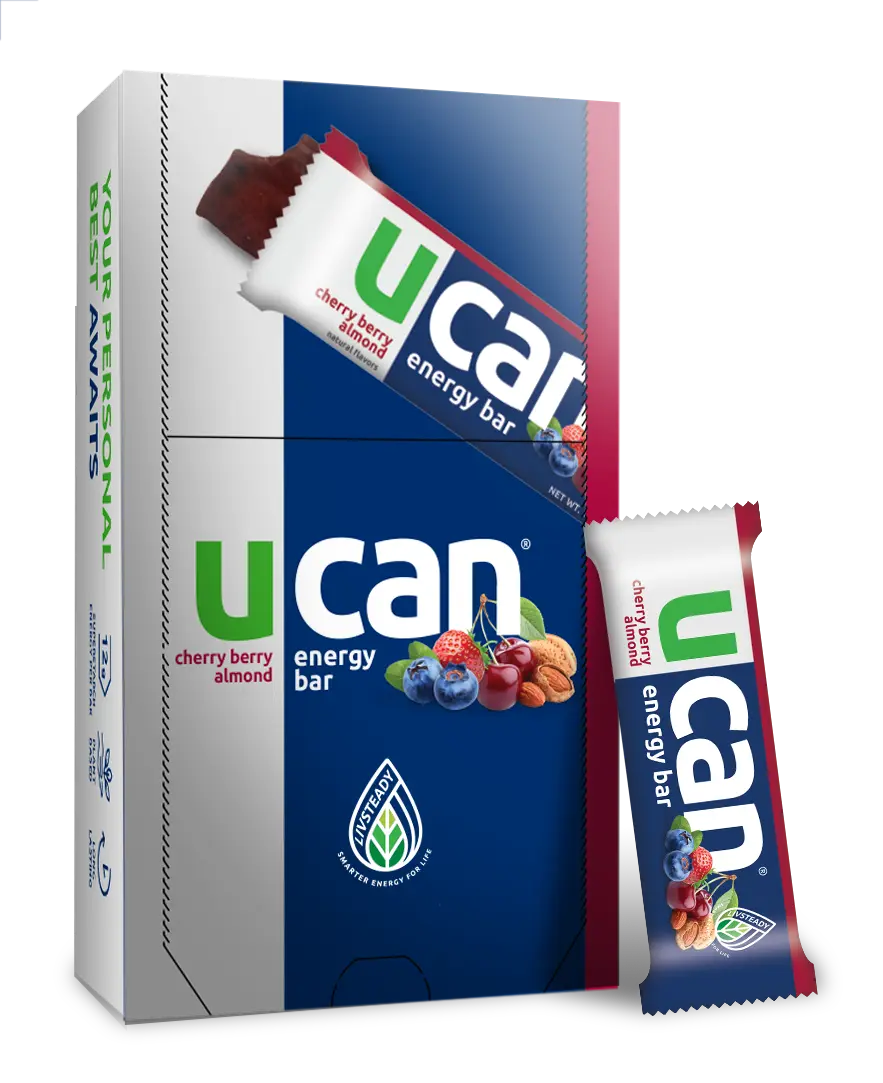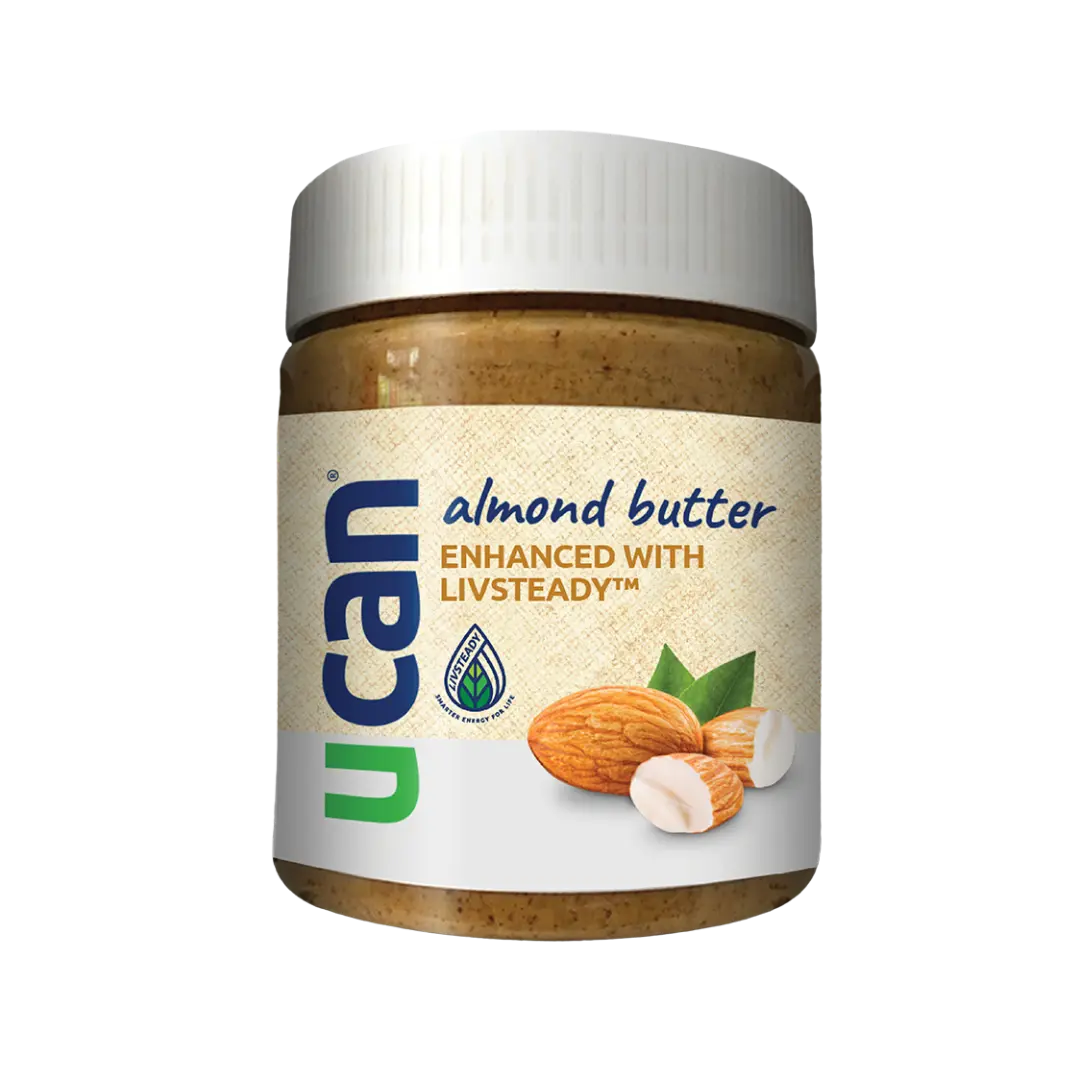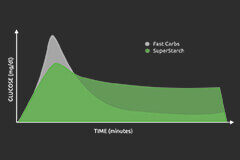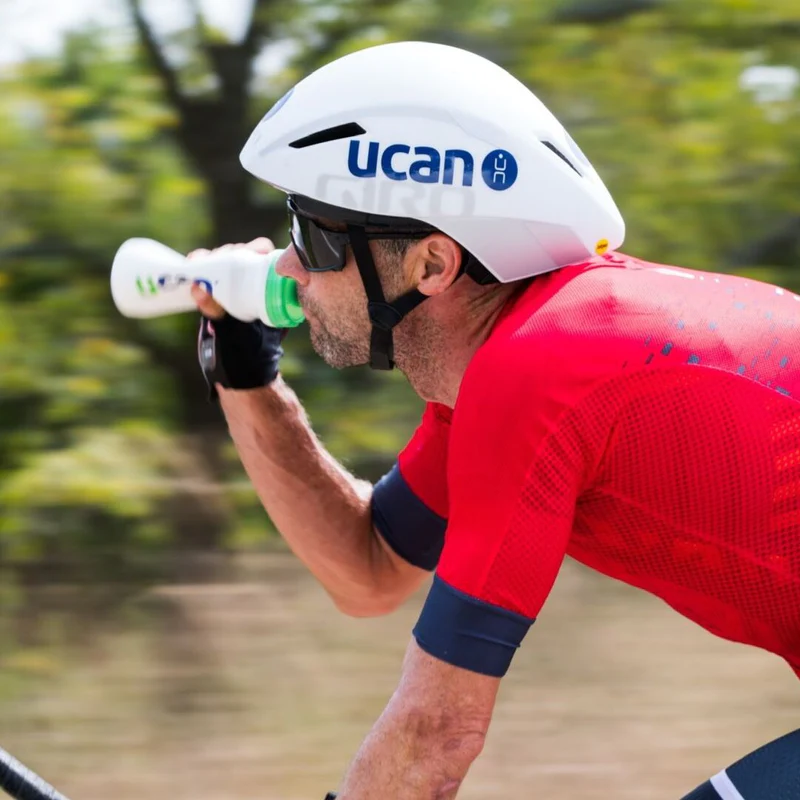- Shop
New to UCAN?
- About
- How to use ?
- Learn
- Contact us
The Best Foods to Keep Blood Sugar Steady
Contents
THE BEST FOODS TO KEEP BLOOD SUGAR STEADY
We’re all familiar with the afternoon slump. You’re going about your day, feeling fine, but then 2 p.m. hits—and instead of thinking about a pre-dinner workout, you’re suddenly thinking about a pre-dinner nap.
That’s about the time of day when many people’s blood sugar and energy levels drop. And while it’s natural for that level to change throughout the day, you don’t have to accept major dips and spikes as a given. While your blood sugar level (the amount of glucose in your bloodstream) is impacted by many factors—including medications, stress, and your activity level—what you eat plays the biggest role. Keeping your blood glucose steady can benefit you both mentally and physically.
One way to do this is to eat carbohydrate-rich foods with a good amount of fiber together with foods that contain protein and healthy fats, says Bob Seebohar, a board-certified specialist in sports dietetics and former sports dietitian for Olympic Team USA. As soon as you eat carbs, your body starts working to break them down into glucose for energy. Simple carbohydrates that have added sugars or don’t have fiber (think cookies or white rice) are broken down much faster than complex high-fiber carbs. They give you a quick burst of energy but also lead to a quick crash. Protein and fat both take longer to digest than carbs and eating them helps slow down how quickly carbs raise your blood sugar.
HOW YOUR DIET IMPACTS BLOOD SUGAR
Your body breaks down carbohydrates—found in grains, fruit, vegetables, milk, and sweets—into glucose. When glucose enters your bloodstream, the pancreas releases insulin to carry it to your cells so it can be used for energy. Any that is left over is stored in the liver and muscles to be used later on when your blood sugar gets low.
“Sugar and processed carbohydrates have the largest effect on blood sugar,” says licensed and registered dietitian Julie Burns, an integrative sports nutritionist and team nutritionist for the Chicago Blackhawks. When you eat too many processed carbs, your pancreas pumps out an increased amount of insulin to move the glucose from your blood into your cells. In the short term, that can cause your energy to surge and then crash.
To compensate, the pancreas pumps out even more insulin to get blood sugar to your cells, but over time, your cells stop responding and can become insulin resistant. The pancreas keeps producing more insulin for these cells but eventually, it can’t keep up, so your blood sugar continues to rise. If this behavior goes unchecked, over time it can impair your body’s ability to regulate and use glucose for energy, which can increase the risk of developing Type 2 diabetes.
However, carbohydrates are a vital macronutrient, so you just need to be smart about the type of carbs you choose. These are the three main types:
- Sugars. These simple carbohydrates break down very quickly, causing your blood glucose to rise sharply. They include the naturally occurring sugar in fruit and milk as well as the added sugar in foods and beverages like soda, sports drinks, candy, and ice cream, plus many processed foods containing white flour. Your body can’t tell the difference between natural and added sugars, but foods, like fruit—with natural sugars— usually also contain fiber and important micronutrients like vitamins and minerals. That’s why whole fruits are a smarter choice than fruit juices.
- Starches. Most are complex carbohydrates, which are digested more slowly and contain vitamins and minerals. Starches are found mainly in fruits, vegetables, and grains, including black beans, lentils, apples, berries, brown rice, whole-wheat bread, corn, and peas, and when paired with fat and protein further slow down glucose absorption. There is also a type of starch called resistant starch that does not get broken down into glucose molecules in the small intestine. Therefore, it doesn’t increase blood sugar or insulin levels.
- Fiber. Your body can’t break down this type of complex carbohydrate—found in fruits, vegetables, whole grains, nuts, seeds, beans, and legumes—so it won’t raise your blood glucose level or give you energy. Like healthy starches, fiber helps you feel full for a longer period of time. There are two types of fiber: soluble and insoluble. Soluble fiber dissolves in water and turns into a thick gel as it passes through your digestive system The gel slows down the digestion and absorption of fats, which helps keep your blood sugar levels from spiking. Insoluble fiber doesn’t dissolve in water but absorbs it. That makes it bulkier so that it can help move food through your digestive system.
10 BEST FOODS FOR STEADY BLOOD SUGAR
By: Kate Cohen






























Comments are closed